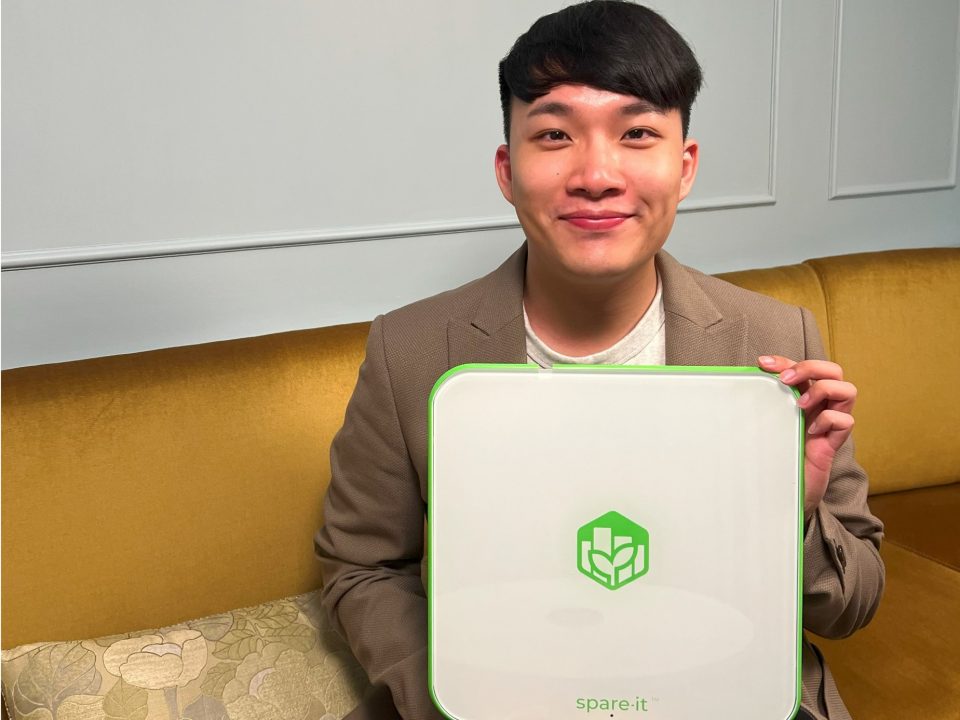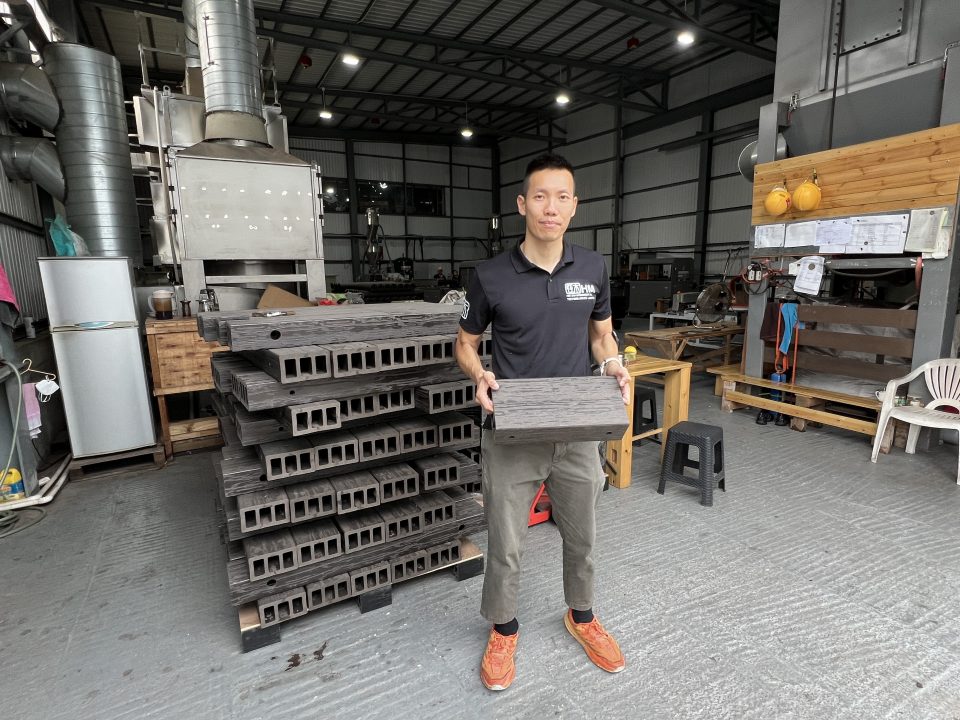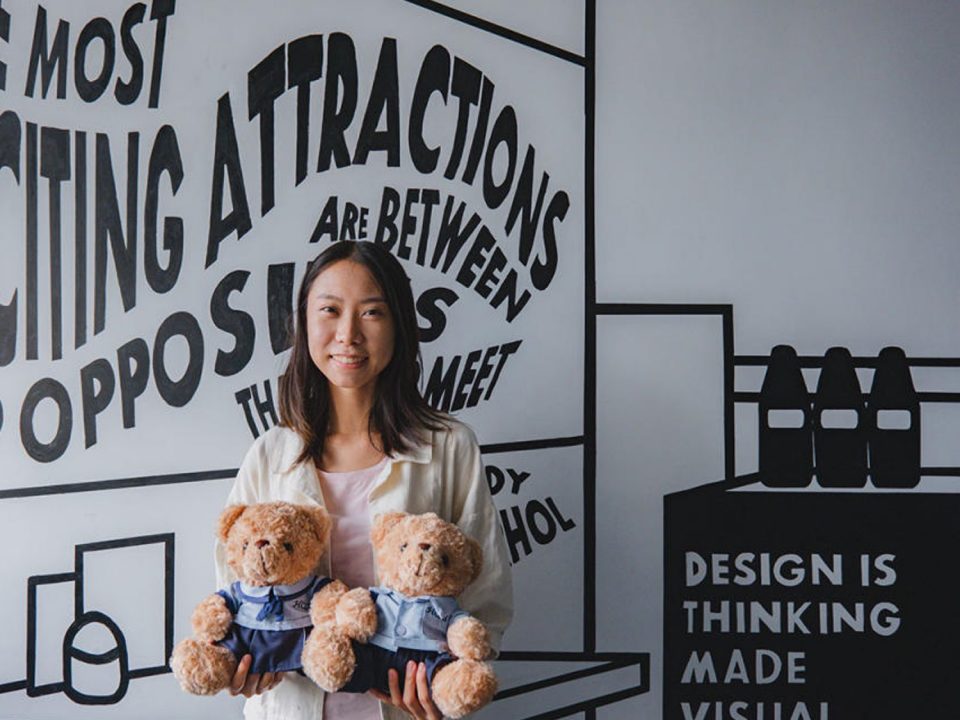
FH Rehabilitation Products Manufacturing Company Limited: Connecting Elderly Care Services and Innovative Technology, Building a Bridge to Joyful Aging
November 16, 2023
Conscious Paper: Turning Trash into Treasure with Handmade Paper Renaissance
January 12, 2024Negawatt Utility Limited: Lighting Up the Future through Enabling Energy Conservation and Changing Behaviour with Technology
They say Hong Kong is infamous for freezing air conditioning, especially when you enter a shopping mall with centralised air-conditioning system. The low temperature helps create quite a stunning scene – people wearing long-sleeve jackets or cardigans on scorching summer days.
“In Hong Kong, the rental for shop or office often includes the fee of air conditioning, which means tenants would complain to property management companies at the drop of a hat if the temperature were pleasant or low – for not getting what they paid for.” Explained Arthur Lam, co-founder and CEO of Negawatt Utility Limited, a Hong Kong-based startup specializing in sustainable development with smart city solutions. “In the past, the temperature of air-conditioning system was adjusted manually. And obviously you couldn’t just hire someone to sit there 24/7 and adjust the temperature according to the ever-changing weather. So, what’d a management company do to avoid complaints? Low temperature, huh? All right, 20°C should work – here you go, exactly what you wish for. It gradually became a ‘feature’ of Hong Kong.”
| Founded in 2019, Negawatt Utility Limited (Negawatt) combines big data, Internet of Things (IoT) and artificial intelligence (AI) to offer custom-made, innovative engineering and cloud-based solutions. The company’s software, hardware and consultancy services help its clients to achieve sustainability management in buildings and co-create smart cities. Negawatt boasts an impressive client list from a wide range of industries and sectors, from real estate developers, property management companies, government departments, architecture firms, NGOs, data centres, consultancy companies to contractors. The startup strives to co-build with its partners sustainable, smart city while focusing on three Sustainable Development Goals: SDG 3 “Good Health and Well-being”, SDG 9 “Industry, Innovation and Infrastructure”, and SDG 11 “Sustainable Cities and Communities”. |
It’s not just about environmentally friendly technology “You’ve got to change the people’s behaviour for ESG to succeed”
[Innovation]
After graduated with a Mechanical Engineering degree from the University of Notre Dame, Arthur founded a clean tech company with his two friends in Hong Kong in 2009. “We started from replacing buildings’ lighting with LEDs; the business then grew into a network of 11 countries all over the world. One time, we pitched Shoprite Holdings Limited, Africa’s largest supermarket retailer, that switching the one million fluorescent tubes of their 1,700 outlets to LED lights meant saving as much as 70% of their electricity bill.”
“Shoprite wasn’t convinced at first, because not only LED lighting was then a new technology and its cost efficiency wasn’t widely known, but also a ‘change’ that could affect customer experience is a definite ‘NO’ for the retail industry. Therefore, we customised a solution for them; eventually, it took us nearly two years to get the contract.” And the results spoke for themselves. “We helped them save 160 million kWh of energy in one year, meaning 1.6 billion kWh of energy for the ten-year contract!”
This experience made Arthur realise that it’s not difficult to achieve environmental progress – what’s hard is to convince people to make changes in their lives. “That’s why I’ve chosen to focus on the sector of real estate and smart city as a goal. Real estate is infrastructure. If we people stay in it for 90% of the time of a day, then modifying the infrastructure brings naturally the change in human behaviour.” Hence Arthur started the journey of digitalisation in building management, more than 10 years earlier than his industry peers in promoting environmental protection with big data. His clientele includes various locally iconic shopping malls and Grade A office buildings.
Back to the centralised air-conditioning system issue, Arthur had come up with a patented software tool called Negawatt Building Operating System (BOS). The BOS makes use of big data, IoT, and AI, as well as sensors installed in a building, to record data such as weather, footfall, and performance of equipment. The software then analyses the data and creates a pattern to automatically adjust the air-conditioning temperature. “Later on, there were more and more international requirements on environmental assessment and sustainability-related regulations for buildings and corporations. The metrics of BOS therefore evolved with the changes in these laws and rules and upon clients’ requests.”
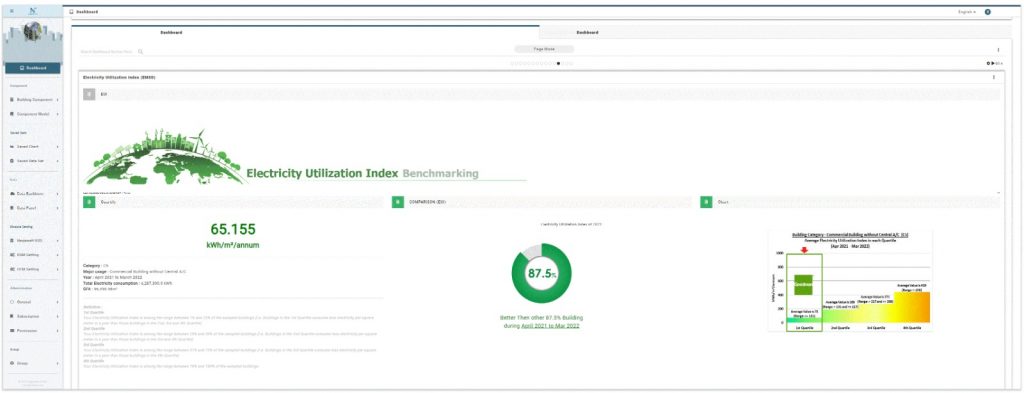
Turning crisis into opportunity – An APP that quantifies environmental benefits and nurtures new green forces
Arthur founded Negawatt in 2019 with a goal of building smart cities, all through achieving, literally, “negative” “watt” (i.e. energy saving) with its building sustainability management services that make use of innovative engineering technology (EngTech) and cloud-based solutions. In Chinese, the company name also carries the meaning of “storage”; it implies pooling energy for positive changes. It was not long before the pandemic overturned the world, but the global plight did unexpectedly inspire Arthur.
“I was reading the ESG reports of listed companies. One international corporation said they had 30% less carbon emission, with an asterisk remarking it was all because of staff working from home – with less usage of lighting, air-cons, elevators, water, etc., water and energy consumption with and their associated carbon emissions would naturally go down.”
“That’s when reality hit me. We’ve been sparing no effort in promoting building energy management, but it’s all a game of numbers in these reports. Those ‘achievements’ were nowhere near a change in mindset, which the latter would come from decision makers of companies understanding the value of ESG and motivating their staff to take action. I realised that we still have a long way to go, in addition to BOS,” said Arthur.
That inspired Arthur to invent a technology that changes the way “people” live their everyday lives. “I wanted an innovation that is inclusive, enabling, and value-added. It has to be able to drive impact in three aspects: environment, community, and economy, so it brings both sustainable development, and, very importantly, economic growth. Only with financial incentives and value would people pay attention and effort. Whether they understand or care about ESG or not doesn’t matter; as long as the people, be they citizens, companies, or government, support and practice it actively, it’s the answer.”
And that was how Zero2, a mobile application that strives to build a sustainable green economy, was born. In July 2023, the “ESG for all” platform was launched in partnership with the Community ESG Campaign “Creating Homes for Sustainable Living” of Hong Kong Housing Society, where app users can gain “points” if they complete “green missions” to reduce carbon emissions in their daily lives. The points can then be used to redeem special offers at participating merchants.
What made Zero2 different from other reward apps is the social value that comes with it. Its promotion reaches the Housing Society’s estates, walking into the neighbourhoods to educate them on how to practice environmental protection. Retirees or the elderly form part of the active users. “During the pandemic, it was compulsory to use the LeaveHomeSafe app; many seniors learned and honed the skills to use mobile phones and apps from there and became avid users. So, when we were doing roadshows for Zero2, they took the initiative to come over and download the app.” Arthur continued, “In this way, Zero2 ‘enables’ the elderly to participate in sustainability. The app brings the marginalised groups back to the community; this is ‘inclusive’. They are now contributors (to society and environment), instead of burdens to the community. The financial incentives, say, a 90% off or some freebies, enhance their purchasing power and standard of living straightaway, strengthening their sense of social status and confidence; this is ‘value-added’.”
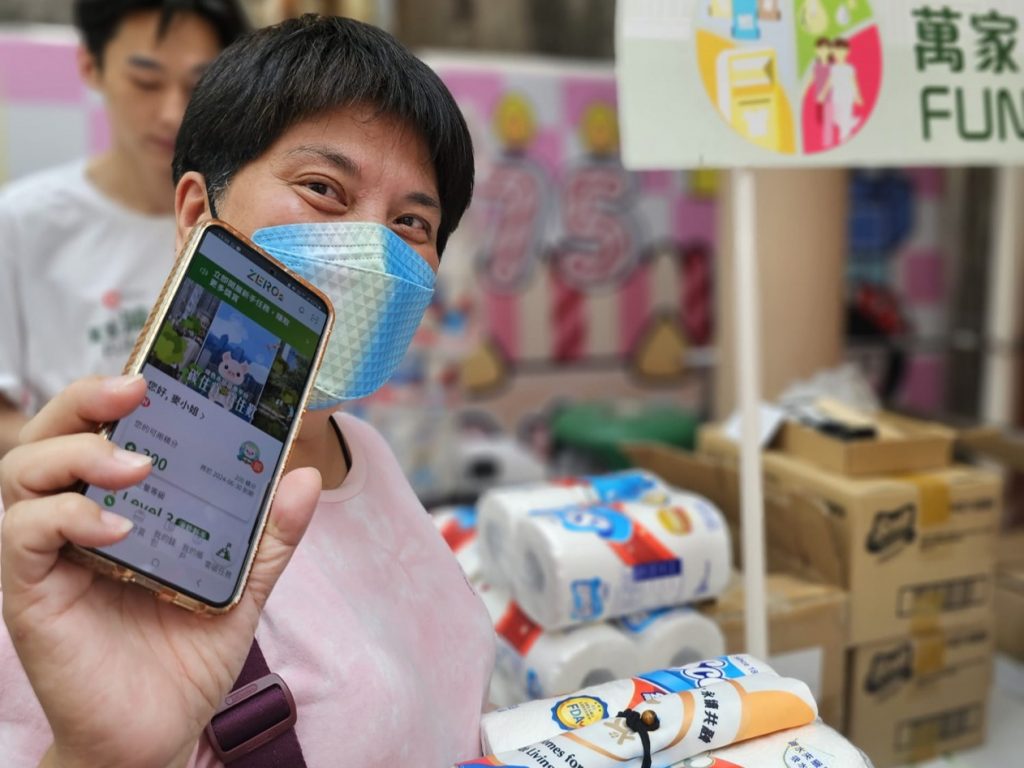
From B2B to B2C – Interactions with clients and the community
[Customer supplier relationship]
Moreover, the Zero2 app engages the participating small merchants and organisations in the journey of sustainability. “Many of them wouldn’t spend a buck on promotions, let alone environmental protection. And what is ESG when you couldn’t even make a living in the pandemic recession? Now, we present you Zero2: just provide us with some offers and we’ll drive traffic to your shop. We’ll digitalise your business, and you’ll help protect the environment. One stone, three birds.”
Arthur had engaged around 500 participating merchants within three months, not without screening and selection. “Screening, for sure, but we tried to be as inclusive as possible, so we’d consider all types of merchants, instead of focusing solely on green, low-carbon merchants (e.g. vegetarian restaurants). The app was proven to be very successful. In one month after the launch, the Zero2 app had ten thousand registered users, recycled 1,700kg of used clothes, glass, metal, and plastic, and avoided the use of 1,000kg takeaway cups, cup lids, and cutlery. These amounted to 140 tonnes of carbon reduction in just one month, equivalent to planting 5,850 trees – the scale of the Victoria Park.”
Many things are going on with the Zero2 app. Besides having the world-renowned commercial real estate services and investments company CBRE as a partner, it sought celebrity endorsement and held a “zero carbon wedding ceremony” in July for the Zero2 app’s mascot ES Pig. The sponsored Instagram post received over 100 thousand Likes. The expanding user base and influence of the Zero2 app are undeniable. “Looking ahead, we will continue to expand the Southeast Asia and Middle East markets, and keep gamifying the initiative,” said Arthur. “Our target is to hit one million registered users within three years, to transform five thousand SMEs, and to at least achieve eight billion (Hong Kong) dollars in a sustainable economy. The ultimate goal is to raise the public’s social awareness and sense of citizenship, and to create smart cities.”
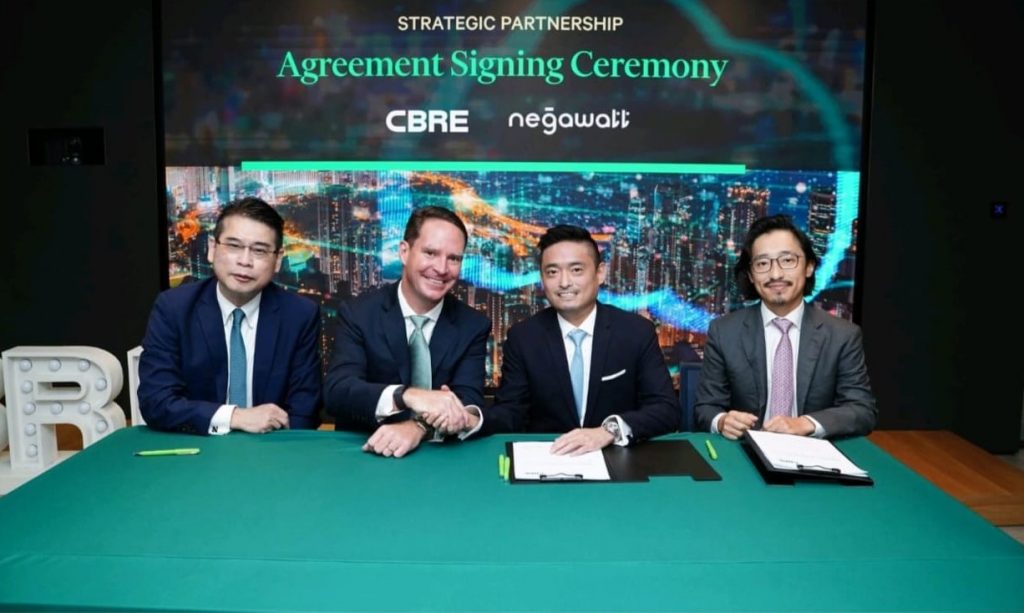
Negawatt is the Silver Award winner of the HSBC Living Business SDGs Awards 2022 (Goal 3: Good Health and Well-being). Negawatt developed a risk analysis system called “Care222” to mitigate the risk of indoor transmission of COVID-19 by measuring the level of the virus and advising corresponding disinfection arrangements. The system has been installed in The Hong Kong Convention and Exhibition Centre, which helps analyse and kill bacteria and viruses at the ground floor lobbies. The Living Business Awards was established in 2004 and organised by HSBC. Partner organisations include The Hong Kong Council of Social Service, Business Environment Council Limited, and Policy for Sustainability Lab (under the Centre for Civil Society and Governance at The University of Hong Kong). The Living Business Awards aims to promote and encourage local SMEs to integrate ESGs and the SDGs into their daily operations, thereby enhancing their competitiveness and productivity.







